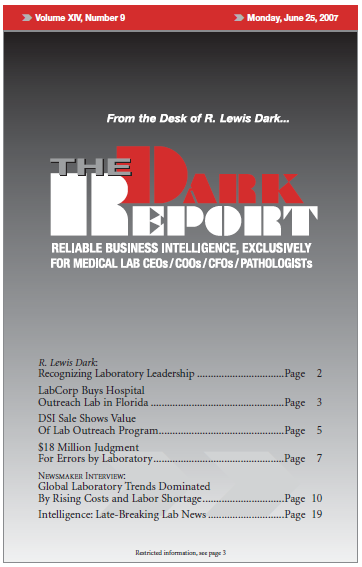CEO SUMMARY: In a wrongful birth lawsuit, a high-risk pregnancy physician in New Jersey requested a cytogenetics test on a pregnant mother, but LabCorp’s cytogenetics lab never did the test. After the baby was born with myotubular myopathy—the same deformity the mother had sought to prevent—she sued and won a jury verdict in her favor …
$18 Million Judgment for Errors by Laboratory Read More »
To access this post, you must purchase The Dark Report.


